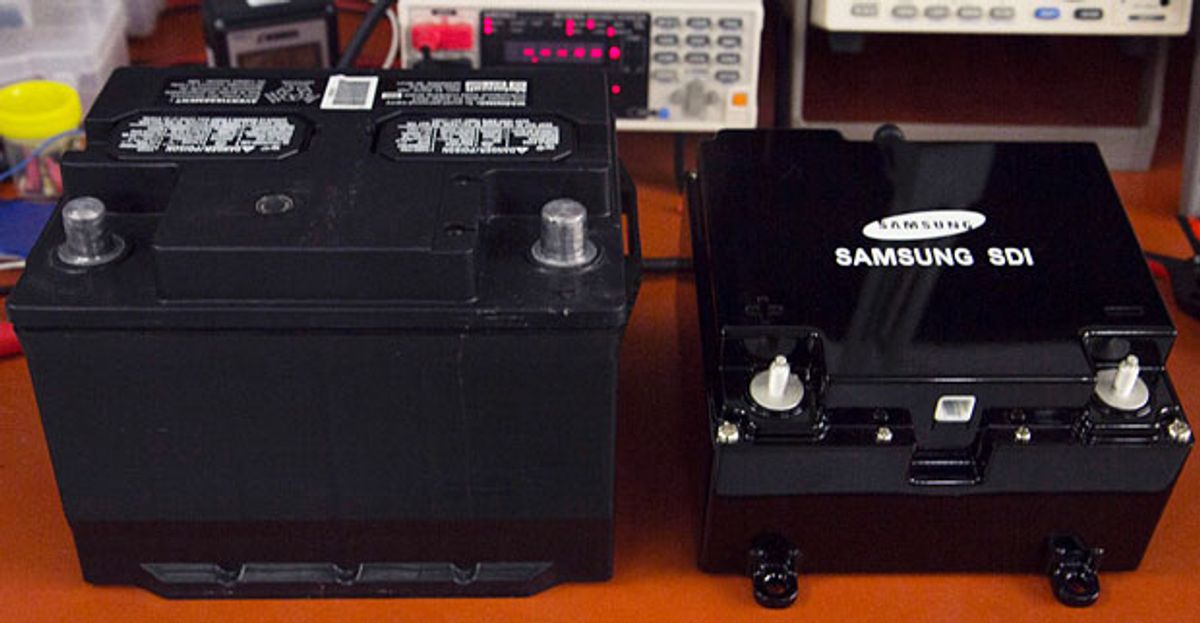After a decade of research, a revolution in batteries could be coming to conventional cars.
Ford and Samsung SDI have partnered to bring hybrid drive technology to Ford’s line up of non-hybrid vehicles to increase fuel economy. The technology, a decade in the making, pairs a traditional lead-acid battery with a lithium-ion battery to allow for regenerative breaking.
In hybrid vehicles, regenerative breaking allows the battery to capture up to 95 percent of the energy that would normally be lost when a driver steps on the breaks. The technology is integrated into Ford’s Auto Start-Stop, which turns the engine off when the car is stopped to save more energy. Ford said it is currently implementing Start-Stop technology across 70 percent of its lineup.
“This dual-battery system has the potential to bring even more levels of hybridization to our vehicles for greater energy savings across the board,” Ted Miller, senior manager of Energy Storage Strategy and Research at Ford, said in a statement. “Although still in research, this type of battery could provide a near-term solution for greater reduction of carbon dioxide.”
Eventually, the goal of Ford and Samsung SDI is not just to make hybrid technologies standard, but to replace the lead-acid battery all together with ultra-lightweight lithium-ion.
Mike O’Sullivan, vice president, Automotive Battery Systems for Samsung SDI North America said in a statement that lithium-ion batteries are more energy dense than many other batteries, which makes them ideal for vehicle applications.
The ultra-lightweight battery is up to 40 percent lighter than previous batteries. The current batteries used in Ford hybrids are already about 25 to 30 percent smaller than nickel-metal-hydride batteries used in previous hybrid models.
By 2025, all light-duty vehicles sold in the U.S. will need to have an average 23 kilometers per liter (54.5 miles per gallon). Ford is also working on making vehicles lighter by using advanced materials in an effort to increase gas mileage for its cars and trucks.
On the all-electric vehicle front, Ford partnered with the University of Michigan on an $8 million battery lab to develop batteries that are smaller, lighter and cheaper. In 2012, Ford invested $135 million in research for battery components and increased battery testing capabilities. Although Ford is sticking with lithium-ion batteries now, it has said its open to other chemistries in the future.
Other researchers, like those at Rice University, are focusing novel materials to increase the energy density of lithium-ion batteries for all-electric vehicle applications. Some of the breakthroughs might not even come from university labs. Tesla Motors’ planned $5 billion Gigafactory expects to drive down the price of lithium-ion batteries by about 30 percent by 2020.



